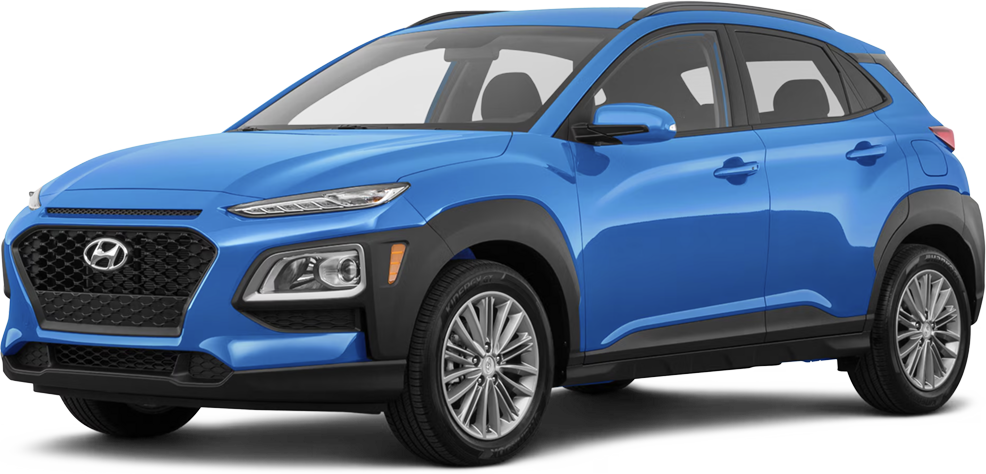How Does Vehicle Depreciation Work & What Causes the Value to Drop?
It starts the moment you drive a new car off the lot, with the steepest drop occurring in the first few years.
November 20, 2024

Have you ever wondered why some cars seem to lose value overnight while others remain steady on the resale market? The answer lies in depreciation—a natural process that affects every vehicle on the road.
Understanding how depreciation works can help you make smarter decisions when buying or selling a car.
What is Car Depreciation and How Does it Work?
Depreciation refers to the reduction in a car’s value over time due to factors such as age, mileage, and wear and tear. The moment you drive a brand-new car off the dealership lot, its value begins to drop.
On average, a new car can lose up to 25-30% of its value in the first year alone, with depreciation slowing in subsequent years.
Key Factors That Affect Car Depreciation
Certain factors cause some cars to lose value faster than others. Here’s what influences depreciation the most:
- Age:
Cars lose the most value in their first three years, as they transition from "new" to "used." After this period, depreciation slows significantly. - Mileage:
The more kilometres a car has been driven, the less it’s worth. Higher mileage indicates more wear and tear, which reduces the car’s resale value. - Make and Model:
Some brands—like Toyota and Mazda—are known for reliability and retain their value better than others. Luxury brands, on the other hand, often depreciate faster because of high maintenance costs. - Condition:
Visible damage, poor maintenance, and a lack of service history can all significantly decrease a car’s value. - Market Trends:
Consumer demand affects how quickly cars depreciate. For example, SUVs and electric vehicles (EVs) are currently in high demand in Australia, which slows their depreciation. - Features and Technology:
Cars with desirable features like advanced safety systems, fuel efficiency, or modern infotainment systems tend to hold their value better than those with outdated technology.
With the closure of the Holden factory in Australia, many models appreciated in value by very large amounts. Unfortunately this cannot be said for all manufacturers.

Car Depreciation Rate Calculation
Who Decides How Much a Car Depreciates?
Cars lose value over time:
First year: 10–15% depreciation right away.
Each year after: Around 15% per year.
Mileage matters:
Over average (10,000 km more than typical): Value drops by 4% for every 10,000 km.
Under average (10,000 km less): Value increases by 4% for every 10,000 km.
Example Calculation:
- Initial Value: $30,000
- Depreciation Rate: 15% per year
- Years Owned: 3
- Mileage Adjustment: 20,000 km above average.
Value After 3 Years Without Adjustment:
- 30,000 × (1−0.15)3 = 30,000 × 0.614 = $18,420
Adjust for Extra Mileage - 20,000 km above average (15,000 km per year):
- 20,000 km = 2 of 10,000 km.
- Value decreases by 2 × 4% = 8%.
- Adjusted Value: 18,420 × (1−0.08) = 18,420 × 0.92 =
$16,949
Car Depreciation/Car Market Value Calculator
Note: These are general estimates based on car market value. Actual depreciation can vary based on make, model, condition, and market conditions.
Why Some Cars Hold Their Value Better
While all cars depreciate, some do so at a much slower rate. Vehicles like the Toyota LandCruiser, Mazda CX-5, and Subaru Foresters are known for their durability, reliability, and
strong resale value. What do these cars have in common?
- Reputation for Reliability: Buyers trust these brands to last longer.
- Demand in the Used Market: Cars with broad appeal and practical features (like family-friendly SUVs) often have higher resale value.
- Balanced Cost of Ownership: Affordable maintenance and low fuel consumption make these models attractive.
How Vehicle Depreciation Affects Sellers
Depreciation is an unavoidable reality, but understanding it can help you sell your car at the right time and price. Here’s how to minimise the financial impact:
- Keep Your Car in Excellent Condition: Regular servicing and repairs can slow depreciation.
- Sell at the Right Time: Selling before a major model redesign or at the peak of market demand (e.g., tax season or end-of-year bonuses) can help.
- Choose Resale-Friendly Models: Opt for brands and models known for holding their value when purchasing.

Which Cars Depreciate the Most?
In the Australian automotive market, certain car models are known to depreciate more rapidly than others.
Here's a table highlighting ten such vehicles, their approximate years of manufacture, average three-year resale values, and factors contributing to their depreciation:
| Car Model | Build Year | 3YR % of Value | Contributing Factors |
|---|---|---|---|
| BMW 520i | 2020 | 36.0 | High initial purchase price, luxury brand depreciation, high maintenance costs |
| Skoda Superb 162TSI | 2020 | 33.0 | Limited brand recognition, higher depreciation in the large sedan segment |
| Mitsubishi Outlander PHEV ES | 2020 | 42.0 | Early adoption of plug-in hybrid technology, market preference for traditional engines |
| Haval H2 Premium | 2020 | 44.0 | Emerging brand with limited market presence, higher depreciation rates |
| Suzuki Ignis GL Manual | 2020 | 44.0 | Niche market appeal, smaller vehicle size affecting demand |
| Tesla Model Y | 2022 | 57.6 | Rapid technological advancements, concerns over battery longevity, increased competition |
| MG ZS | 2020 | 85.0 | High initial depreciation upon purchase, limited brand recognition |
| Ford Ranger XLT Double Cab | 2020 | 62.31 | High initial purchase price, market saturation |
| Mazda CX-5 GT AWD | 2020 | 60.51 | High initial purchase price, market competition |
| Mitsubishi Triton | 2020 | 73.37 | Market competition, high initial depreciation |
These figures indicate that luxury vehicles, certain less-established brands, and models with high initial purchase prices tend to experience higher depreciation rates in the Australian market.
Factors such as brand recognition, market demand, technological advancements, and maintenance costs significantly influence a vehicle's resale value.
Final Thoughts
While depreciation can seem like a frustrating reality, you can make smarter choices to reduce its impact. Whether you’re buying a new car or selling your old one, focusing on reliability, condition, and timing can help you get the most out of your investment.
If you’re ready to sell your car quickly and at a fair price, we make it easy. With fast payments, no need for a Roadworthy Certificate, and hassle-free paperwork, you’ll get the best deal with none of the stress.







